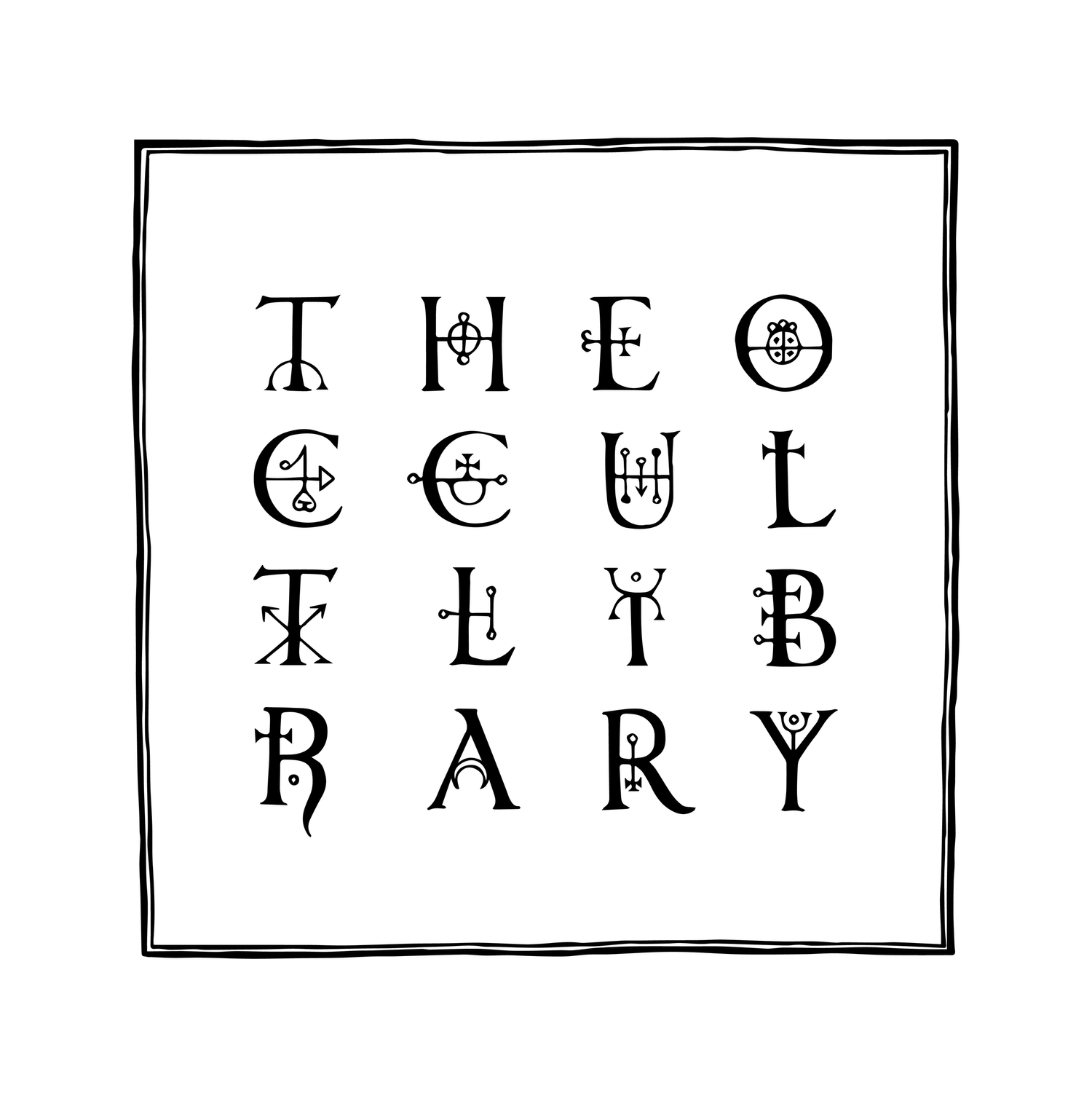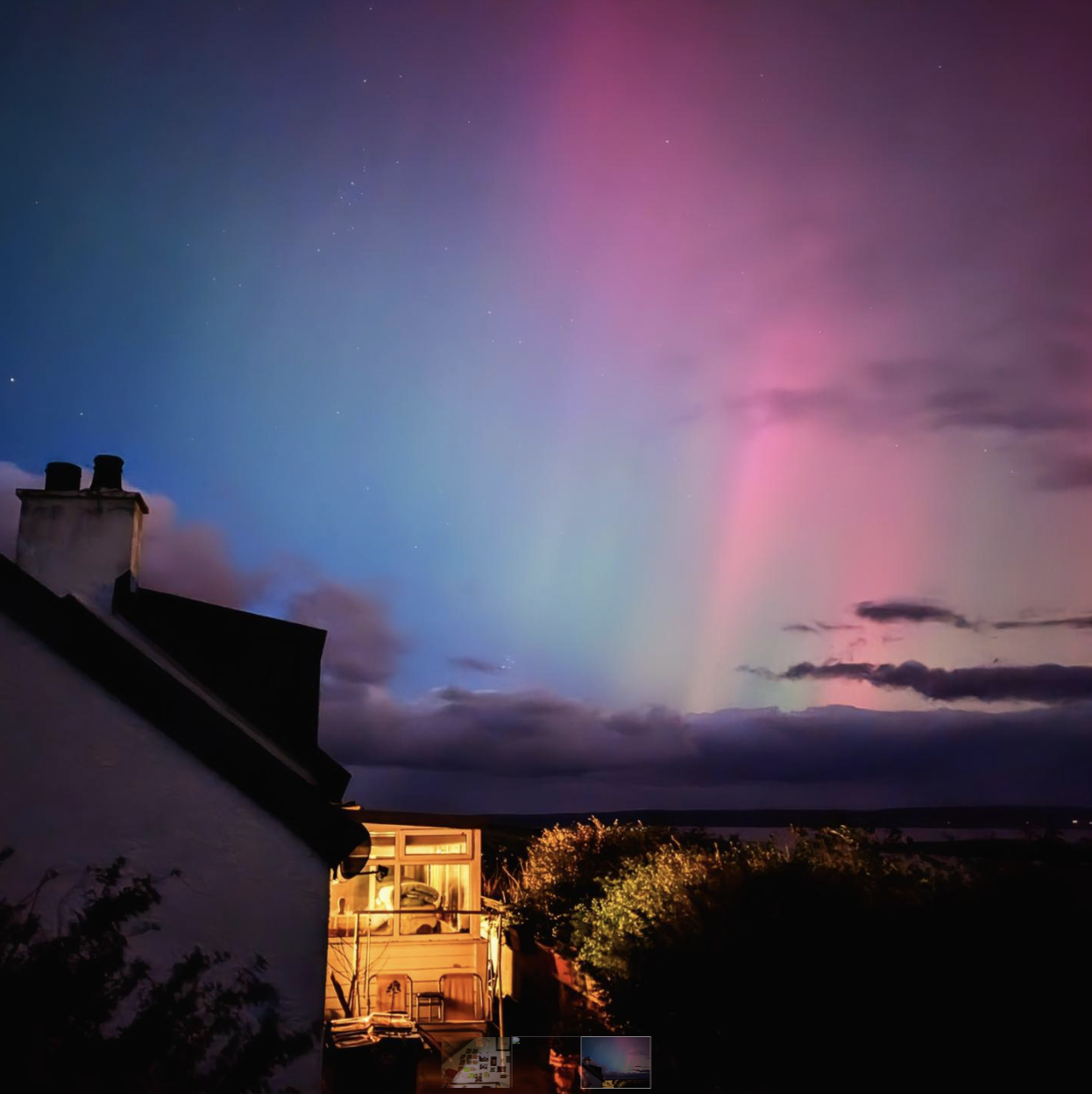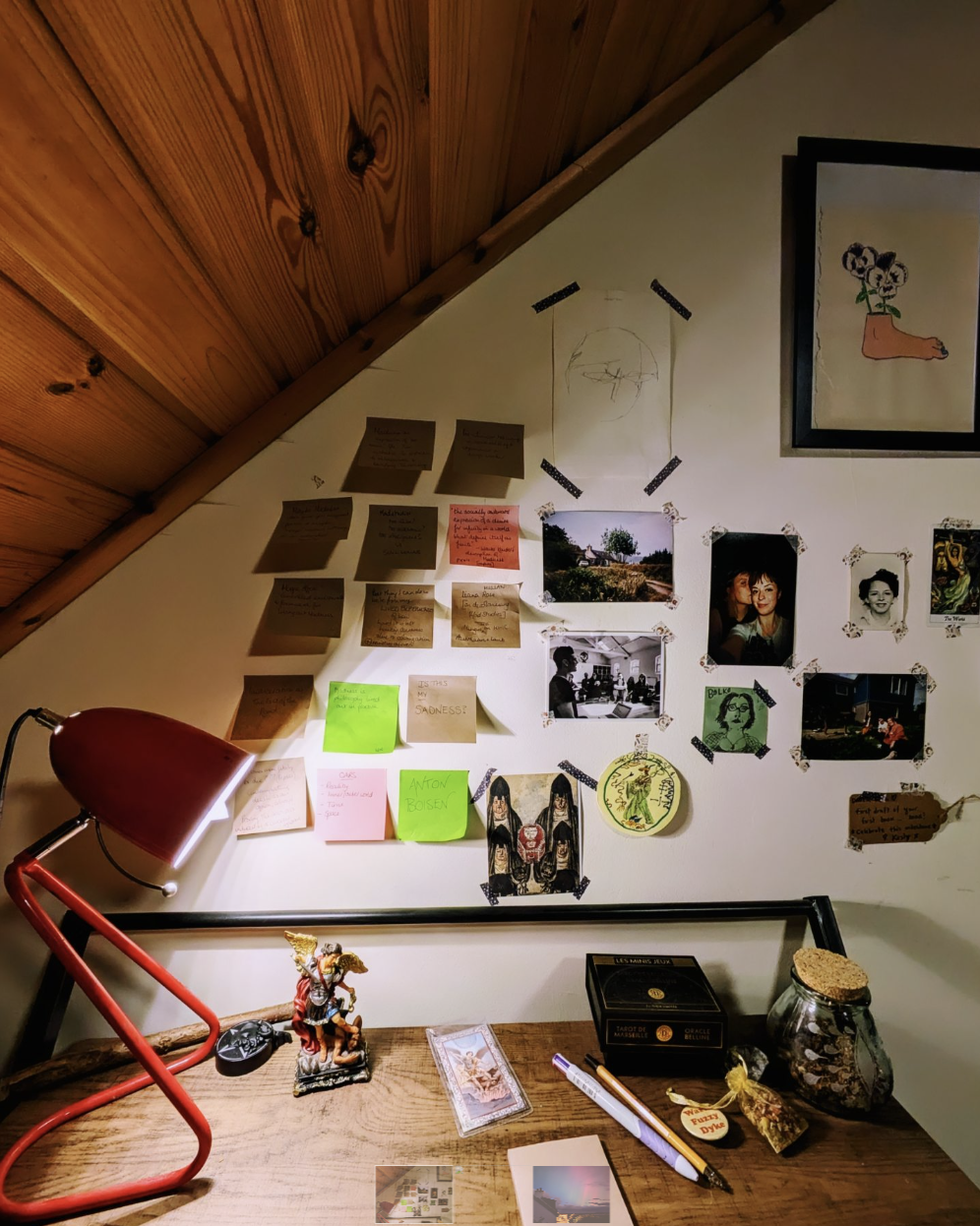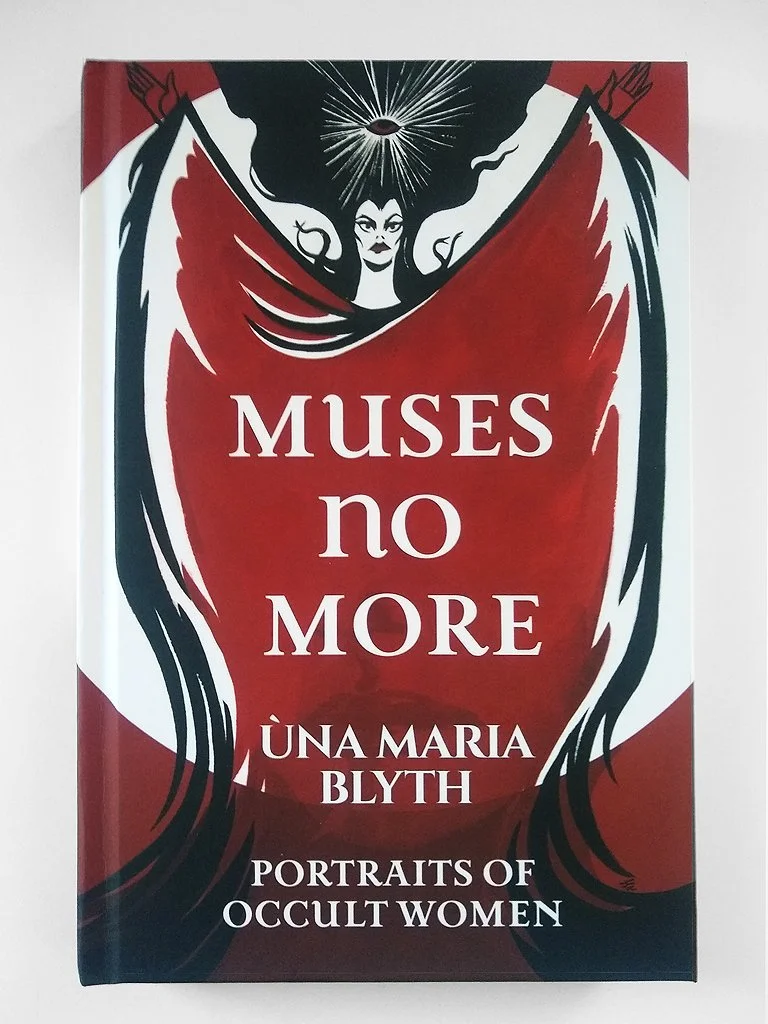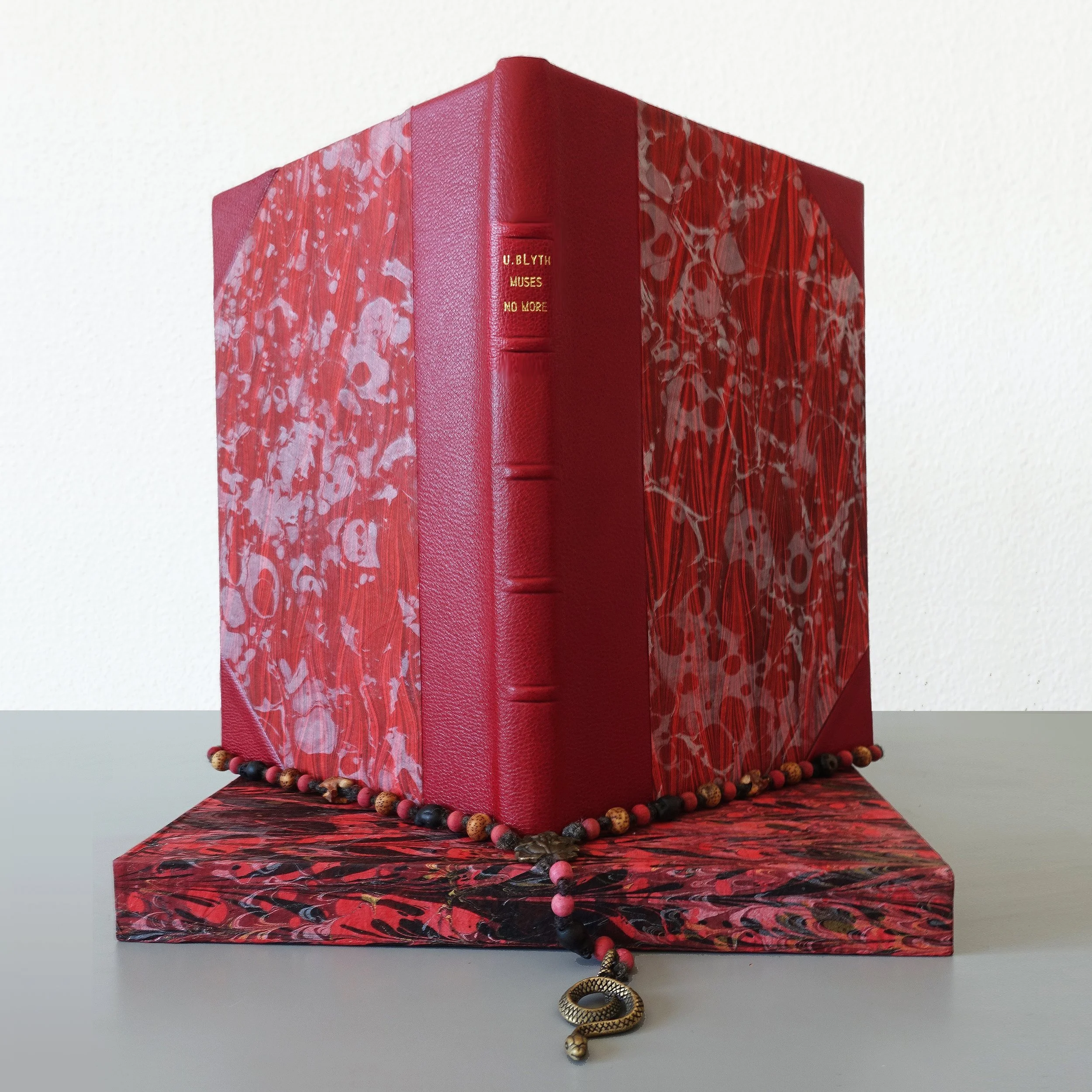In Conversation With Ùna Maria Blyth
Ùna Maria Blyth is a queer, neurodivergent writer living in the Shetland Isles, a remote archipelago located between Scotland & Norway. She is the author of Muses No More: Portraits of Occult Women (Hexen Press, 2024).
In addition to Muses No More, Ùna has written for a range of publications including Folklore for Resistance, Sabat, Rituals & Declarations, Doggerland, Fire & Knives, and the academic text Reframing Immersive Theatre (published by Palgrave Macmillan).
A former member of London-based ritual immersive theatre company FoolishPeople, her academic background lies in political philosophy (University of York) and film (Central Saint Martins).
OL: Hello Ùna, and thank you for taking the time to speak with us today. We are delighted. Shall we begin with your own locale, the Shetland Islands? The Isles are comparatively isolated, and this no doubt offers a unique psychogeographic atmosphere. How has this locale played into your creative and writing experience?
Ùna Maria Blyth
UMB: Hi! It’s wonderful to be interviewed for this incredible resource — thanks for inviting me. And a great starter question too! Shetland has long been referred to as “the edge of the world”, and not without reason. There is a brutality and bluntness to life upon the isles: we exist at the mercy of the elements. The wadder (weather) dictates life to a large degree. We wonder, will the boat from mainland Scotland be able to cross the sea with our groceries? Will the children be able to get to school today?
Because of this unreliability we have excellent local produce, infrastructure and community spirit that is second to none. Although it's sometimes impossible to get outside because of, for example, gale force winds and horizontal rain (I have been known to suffer from agoraphobia, which doesn’t help matters), that can be a blessing when it comes to creativity as I’m sure you can imagine. Cooped up is often the best possible situation to find oneself in as a writer. Cooped up whilst supported in the necessities of life by a wonderful community? It really is dreamy and I’m well aware of that.
On sunny, calm days, the sea glistens with selkies (seals) to sing to, and the occasional pod of orcas to marvel at. The hills and bogs loom, in the manner of Saturn, witnessing time’s slipperiness like wise old men. Our lore is thick with shoopilties (water spirits) and trows (kind of like a cross between a Scottish fairy and the Scandinavian troll, but very particular to the region). On a daily basis I am overwhelmed by the conjunction of landscape and deep time. This state of overwhelm — of awe and the majesty of life — really is, for me, the ultimate spark of inspiration.
Aurora Borealis over the Shetland Isles, called the “mirrie dancers" in dialect
OL: As we understand, you were a member of an immersive theatre group in the less-isolated city of London, called FoolishPeople. Writing may be thought of as a process with its own stage, numerous players, and a ritualized whole that is greater than the sum of its parts. What is your theatre background and how has this influenced your subsequent writing processes.
UMB: After being very sensible and studying Politics at university, I was lucky enough to be accepted into a very small and rigorous drama school — Drama Centre — which is part of Central Saint Martins College of Art. Being only twenty, I had a highly romanticised vision of this endeavour’s purpose: even though I was technically there to study film, I wanted to join a chaotic, bohemian, higglety-piggeldy travelling theatre troupe upon graduation.
Somehow I left Drama Centre with a Masters degree, despite possessing a terrible penchant for skiving and street drugs. Even more miraculously, within a year or two I was accepted into the theatre troupe of my dreams — FoolishPeople. I’d followed their work for a while, and was enamoured of their bold public statements such as “we are a Magickal Order, we don’t make fucking plays”, or something like that. Little did I know just how fully engaged they were in terms of magic. I received a thorough grounding in chaos magic and ritual, even undertaking an extensive initiation process which was both terrifying and enlivening.
In terms of my writing processes nowadays, I maintain a strictly ritualistic approach. Writing is a process both sacred and profane; I’m not entirely sure what its mechanics are, but I know how to create the right conditions in which words can emerge, and more importantly, punctuation, which is the breath and musicality that intrigues me most of all. A taste for rhythm lies at the heart of the methodology I learned back at the Drama Centre, which was rooted in studies of Meisner and Laban. For me, writing, like acting, is rooted in the breath; the rhythmic basis of our lives. It’s all quite bodily, I suppose. And bodies are interconnected.
Ùna’s writing desk at home
OL: Let’s turn to your 2024 work published by Hexen Press entitled Muses No More: Portraits of Occult Women. We had a chance to sit down with this wonderfully potent work, which details the lives of numerous women in the arena of the occult. You describe the work as a “compendium,” which aims to fill gaps located within a male-dominated sphere. How have you seen this work accomplished by the book, and how have your readers responded?
UMB: Thank you for your kind words about the book. I have been both delighted and surprised by the positive reception Muses No More has received. I felt rather vulnerable publishing my first book, inevitably, so to receive praise and even gratitude… well, I’m still not entirely sure how to let all those nice feelings land in my body! At times it has felt quite unreal. There have been a few groans and gripes about my perceived Crowley-bashing, or the omission of figures such as Dion Fortune and Helena Blavatsky, but that was really quite predictable, and I’ll admit I enjoy pissing off angry white cis guys.
In terms of what the book has accomplished… well, I’m not sure I can be the best judge of that because I’m quite harsh on myself. But for me, the greatest accomplishment is those readers who go on to further study the women whose lives I cover in the book. To inspire further study really is a wonderful achievement for me, and I’m very pleased to hear that the book is inspiring that in people. The book could easily have been ten times the length, but I am also glad for its concision and especially proud of its accessibility. Accessibility is always of prime importance to me — I try not to obscure my writing with academic jargon. I want to write books that are a joy to read because life is short and we all deserve to find pleasure in our reading time.
Standard Hardcover edition of Muses No More
OL: The first section of the work contains 17 chapters, each detailing a unique figure in this realm. Was it a challenge to detail these women in such an honest and reverent way, while also maintaining the concise level of information in each chapter?
UMB: I’ll admit I write in a daze. An absolute daze! I’m not entirely sure what comes over me. I write like a wild thing so that I can get down to the really important business, which I love most of all — editing. I love carving sculptures out of words, so when it came to writing these women’s lives I started with a long tangle of words which had no real essence, and then hacked, hacked, hacked away at each chapter until I had something resembling their portrait.
The honesty came from ever-increasing bravery in countering self-censorship. I’m a very political person and I didn’t want to hide my strong beliefs. I had to keep reminding myself that this was my book and that my voice was allowed to shine through. Learning to be a decent storyteller requires giving oneself a lot of permission to be present in the story itself. For those of us not used to feeling powerful, this is the real challenge.
OL: The second section of the book contains a practicum, with rituals and practices channeled and inspired by each of the 17 women in the book. Would you tell us a bit about this process, and the way in which such personal work makes way into a published text?
UMB: Oh I really assumed that readers would hate the second section! It felt terrifying putting it out there because of how personal it is, so every time someone gets in touch to let me know that they’re deeply engaging with the practices, I come close to tears. That awe comes into play again. Awe and terror, awe and terror! The lifeblood of authorship, perhaps. I worked so closely with the spirits of the 17 women in creating the practicum that it doesn’t really feel like something I can take credit for, to be honest. These practices just spouted out into my lap after I created the conditions, and I did my best to test them thoroughly and communicate their methods and value.
OL: Hexen Press – based in the French region of Occitania – have done a fantastic job giving body to your writing. Adorned with the art of Luciana Lupe Vasconcelos, the editions include a splendid artisanal edition. How did your relationship with Hexen Press, and indeed Luciana, come about?
Artisanal Edition of Muses No More
UMB: I have only praise for Hexen Press and Luciana’s work. I’m quite present on Instagram and had been following both on there for quite some time. Reading The Art of Fosco Culto, and experiencing the hand-feel of it, the production itself, gave me a very strong felt-sense that I needed to just go ahead and pitch my own book to Hexen.
It all happened pretty quickly and I have a terrible photo my partner took of me, sitting up in bed late one night, in my nightdress, having just signed a publishing contract and feeling like it was probably one of the most important days of my life. Indeed, it was. That feeling was second only to holding the physical book in my hands for the first time. I was hysterical. All those years of writing, of grafting and striving to be better at what I do, and there it was. My book.
But it’s not just my book, of course. It was a collaborative effort. Hexen Press were so expertly supportive, and Luciana’s illustrations really capture the energy I wanted to convey. The aliveness of these women. Their inner lives, their creations, their magic. The way Luciana conveys movement and spiritedness in her work is so fierce. The typesetting and finish of the book is similarly bold and crisp. All this, to house my words in — what an honour.
Inner pages of Muses No More.
OL: You’ve also written for several journals and small presses like Sabat, Folklore for Resistance, and so forth. What is your experience working with these smaller-scale publications, particularly insofar as they helped develop your writing voice?
UMB: Every experience of working with a new publisher is different, and I’ve had some really great opportunities. The thing I look for in any publisher, whether it’s a small zine or an academic textbook, is respect for writers, support as a collaborator, and fair distribution of profits. I write because it is my passion and I love ideas, and it’s easy to sense whether the publisher I’m writing for is similarly passionate, or merely chasing accolades. A recent report in the UK found that the median earnings of writers in this country is £7,000 per year. Far below minimum wage. So none of us authors are in this business for the money. Respect and a sense of being in the endeavour together, on equal terms, really helps.
There are many incredible journals and zines out there that provide wonderful platforms for new writers and I’m so grateful to those editors who took a chance on me, especially the editors who took extra time to work with me on texts in a constructive way. What a gift.
In terms of zines, I’ve always had a real taste for them, publishing my first one back in the 90s - on the topic of my favourite androgynous goth band of the era, Placebo. I think I was about 13 or 14. So, that love of small presses and passion projects runs deep.
OL: Finally, Ùna, have you any special plans for upcoming works, writing, or creative projects that you’d like to tell our readers about?
UMB: I’m currently in the early stages of planning my next research project, which will eventually lead to another book. It’s going to be a slow burner. I’m taking my time with it because the subject — magic and Mad studies — is a very personal one for me given that I live with manic depression. I’m always keen to hear from fellow magical practitioners who live with severe mental illness: this has long been a point of great interest for me. It takes a bit of building up steam to embark on any major undertaking like book research. I’m psyching myself up for it, I guess.
OL: Ùna, thank you so much for taking the time to speak with us today. We are grateful for your work, and we congratulate your efforts on publishing this past year!
UMB: Thank you so much for the opportunity. It’s been a pleasure to answer such generous and thoughtful questions.
Ùna Maria Blyth’s website can be found here.
Hexen Press can be found here
